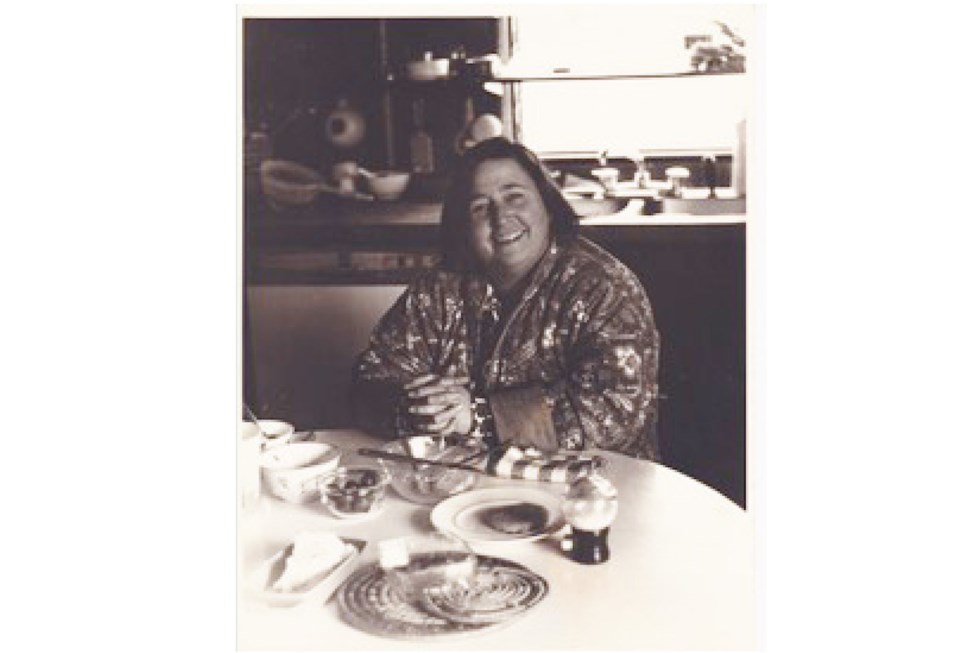“You are your mother’s daughter,” one of my brothers recently said to me.
There was time in my life when that would have been a pretty major insult but I am older now and can see the immense value of my mother’s life. My mother passed away several years ago after a difficult struggle with dementia but in her prime, my mother was a force. A force for the greater good. She also was a paradox: the obese nutritionist, the middle-class Downtown Eastside worker, the misanthrope social worker and the professional who chose to surround herself with hippies.
My parents moved to Canada in 1969. My father was offered a job teaching at UBC as a Professor of Chinese History. My mother was happy to leave the U.S. and embraced Vancouver, and Canada, wholeheartedly, just as she had done when we had moved to Taiwan for a year so my father could do research. True to my mother’s nature, when the academia wives suggested buying a house in Kerrisdale or Shaughnessy, my mother pushed hard to buy in Kits. Kitsilano was home to Vancouver’s hippies and to the Greek community. In Taiwan my mother had befriended the neighbourhood women with her tone-deaf Mandarin so that they would teach her how to cook their regular household recipes, so it is not surprising that she equally plied the Greek women of our new neighbourhood for theirs. I grew up eating squid before “calamari” was a trendy thing on (non-Greek) menus. She’d head down to the docks and ask the fisherman what they were willing to part with. One best-forgotten year our big freezer was packed with shark after my mother found that the fisherman were just throwing it away. We kids weren’t too fond of shark but there were no special kids’ meals in our house and shark was a cheap (free), healthy source of protein.
In the mid 1970s, my social worker mother applied for, and received, a grant to start something she called Food For Your Needs (FFYN). She would go to the Downtown Eastside and, with the assumption that many of the men living in the SROs were going to spend the majority of their pay or welfare cheques on alcohol (the main drug of the time on the DTES), she would teach them how to shop and cook nutritious food with the small amount of money left over, post-binge, on their tiny little hotplates. That usually meant beans and rice with whatever vegetables she could scrounge for them pre food bank (which started in the early ’80s). For my mother to have frequented “skid row,” unaccompanied, when most middle aged, middle class mothers wouldn’t have gone anywhere near that neighbourhood, says a lot about how strongly she felt it needed to be done.
Her experience with FFYN propelled her back to school (UBC and Loma Linda University) to become a nutritionist and during that time spent months in Bella Coola with elders learning the footways of the Nuxalk Nation––one of the best times of her life. She was hired in her 50s by the Simon Fraser Health Unit and worked there as long as she could in community outreach. She was interviewed on both Co-op and CBC Radio. She continued to volunteer teaching food preservation and canning at Kiwassa Neighbourhood House in East Vancouver (working with the Fruit Tree Project and the food bank), as well as volunteering to answer parents’ nutrition questions at Westside Family Place until a few years before her dementia completely disabled her.
Where am I going with all of this? In my life food has always been important. My mother’s passion made sure of that. Just as my father’s passion has given me a somewhat Asia-centric view of the world. Food is so much more than fuel—although good food is definitely that—it is social, cultural and sometimes even political. I was fortunate to marry a man who loves to cook and is really good at it too! We have travelled together and taken our boys to live in other cultures and food has always been the thread that has woven through all of our adventures There have been many different versions of what that has looked like from Bowen Legion dinners to TV cooking shows to a blog about our life in South India. The current COVID-19 incarnation is a YouTube channel called Real Food.
The food in this video series is meant to be accessible. I am intentionally not making croissant or a Thai sticky rice meal or mapo tofu or spanakopita or homemade sausages or cabbage thoran or any of the many recipes that we love in our home because I want people to not be daunted - those can come later. Easy recipes with easy to find ingredients that take very little hands-on time but that produce flavourful, healthful food. I want people to know that they can make real food and don’t need to rely on pre-made and packaged foods; that it doesn’t have to be expensive and you don’t need to be a stay-at-home-whatever to make fresh food - even if you don’t think you can cook. All of the recipes in the videos so far can be vegetarian and many of them can be made vegan as well. They are adaptable - to your tastes and your needs. So you see, I am, in fact, my mother’s daughter, and I invite you to join me in making Real Food.



